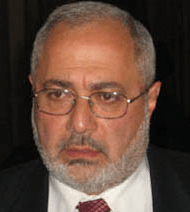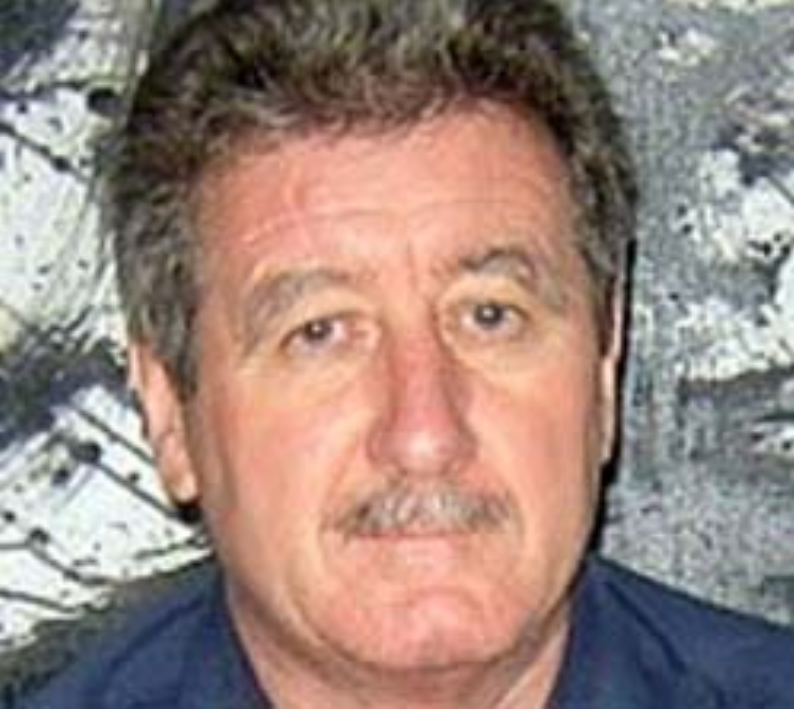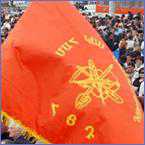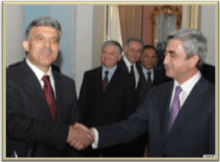 That was the retort from a leader of one of Armenia’s coalition parties, when in 2004 he was asked whether Armenia should resolve its differences with its western neighbor; the person who promised to release details of his 2004 Parliamentary Commission studies of grants, credits and humanitarian assistance, former Deputy Speaker of the Armenian National Assembly, Vahan Hovhanissian.
That was the retort from a leader of one of Armenia’s coalition parties, when in 2004 he was asked whether Armenia should resolve its differences with its western neighbor; the person who promised to release details of his 2004 Parliamentary Commission studies of grants, credits and humanitarian assistance, former Deputy Speaker of the Armenian National Assembly, Vahan Hovhanissian.
In 2004, Vahan Hovhanissian’s Parliamentary Commission found corruption worth $200 million dollars, at a time when the total Armenian state budget had just increased from $400 million to 600 million dollars. But he reneged on his promise to release the details to the Armenian people, so his rating plummeted and the party’s reputation suffered another setback. The Dashnak Party had long been hanging on to Kocharian’s apron strings, so Hovhanissian was put up as Republican Party fodder in the 2008 Presidential election to allow the apron to be passed on to the Dashnaks arch enemy Serzh Sargsyan.
Vahan has since parked his tank, and together with his fellow party leaders, for the past few months he has been sneaking toward the Turkish border, ‘Cap-in-Hand’, eagerly awaiting his pickings from the compensation package Sargsyan and Nalbandian have negotiated for their ‘No Pre-conditions’ capitulation with Turkey.
That was until the 27th April, when Dashnak Party leaders eventually decided they could no longer stay in Armenia’s Government coalition, ostensibly betrayed by their leader, Armenia’s President Serzh Sargsyan.
Vahan Hovhanissian, Armen Rostumian, Kiro Manukian, Hrai Karapetian, and other Dashnak Party leaders have long known of the deal their President and his MFA Nalbandian have been clandestinely negotiating for Turkey to open (or maybe not to open) the Armenian border. But they have been silently sitting back and waiting for the ‘No Pre-conditions Roadmap’ to be finalized. Public knowledge of a signed 22nd April ‘Genocide Sell-Out Memorandum’ was the straw which broke the Dashnaks party back in the Sargsyan coalition; they could no longer reasonably explain their collusion in such treachery, especially with such opposition outrage and probably under pressure from Genocide lobbying Dashnaks in the Diaspora.
But with regard the signed memorandum, the Dashnaks should not blame their President Sargsyan, the blame for that has to go to America’s President. Assurances of a ‘warming relationship with Turkey’ would no longer hold water for the honest and well-intentioned Barac Obama, not even from the President of Armenia. Only a signed document would have sufficed for him to renege on his Genocide promise to the people of Armenia, so that is what he and his administration demanded – and got.
The signed document came in the form of the Nalbandian – Babacan ‘No Pre-conditions Roadmap’, which officially remains under wraps. But snippets of the details can be found through Turkish, Russian or other international media, even Azerbaijan – but certainly not from Armenia.
- First non pre-condition: Armenia will agree to Turkey’s commission, or a number of commissions, to study Turkish / Armenian affairs, not excluding Genocide.
- Second non pre-condition: Armenia will ratify the Kars agreement of 1920, formally withdrawing claims to historic Armenian lands in the east of Turkey.
- Third non pre-condition: Armenia will agree to Azerbaijani demands on Karabakh, including withdrawal of troops from the surrounding territories.
- Fourth non pre-condition: Armenia will not have an embassy on Turkish territory, but diplomatic relations will be conducted through Tbilisi.
- Fifth non pre-condition: Turkey will determine if and when the border will be opened, possibly starting with one day each month.
The Nalbandian – Babacan ‘Roadmap’ will no doubt motor on unhindered by the Dashnak Party departure, and Armenia’s coalition will probably be more relieved than distraught by the Dashnak Party loss.
But whilst the Dashnaks did little good in the coalition, they could well do considerable harm out of it. If the Dashnak Party effort goes towards regulating the out of control Sargsyan regime, then there may be the hope of a better future for Armenia. But if the Dashnak Party continues collaboration with its Kocharian / Sargsyan mentors, and its capabilities and influence are directed toward frustrating the efforts of Armenia’s only real opposition leader, Levon Ter-Petrossian, and his National Congress, then the Dashnak Party will seriously harm the chances of a more democratic future for the Republic and add yet another disgrace to its already badly tarnished reputation.
Bruce Tasker
Armenian Parliamentary Analyst





 With Turkish / Armenian negotiations reaching a peak, the focus of attention is moving from the wider debate to petty bickering over who said this and who said that, the inevitable outcome of a process in which a country’s leaders discuss fundamentals of agreements with their international counterparts then hide the truth from their domestic audience. The Armenian negotiating parties, President Sargsyan and MFA Nalbandian, have unashamedly deceived the Armenian public with respect to their year-long negotiations on Karabakh and Genocide. Today, they would have the Armenian public believe that Turkey has suddenly introduced pre-conditions for opening the border, an untrue statement and particularly alarming as it came immediately after discussions with the US President in Turkey, which surely must have led to a common understanding between Turkey, Armenia and the US. True, the Turkish side did change its position after Obama’s trip to Turkey and re-introduced Karabakh as a pre-condition. But in contrast to Armenia, Turkish reports on its position have been consistent, in Ankara, in Baku and in Yerevan.
With Turkish / Armenian negotiations reaching a peak, the focus of attention is moving from the wider debate to petty bickering over who said this and who said that, the inevitable outcome of a process in which a country’s leaders discuss fundamentals of agreements with their international counterparts then hide the truth from their domestic audience. The Armenian negotiating parties, President Sargsyan and MFA Nalbandian, have unashamedly deceived the Armenian public with respect to their year-long negotiations on Karabakh and Genocide. Today, they would have the Armenian public believe that Turkey has suddenly introduced pre-conditions for opening the border, an untrue statement and particularly alarming as it came immediately after discussions with the US President in Turkey, which surely must have led to a common understanding between Turkey, Armenia and the US. True, the Turkish side did change its position after Obama’s trip to Turkey and re-introduced Karabakh as a pre-condition. But in contrast to Armenia, Turkish reports on its position have been consistent, in Ankara, in Baku and in Yerevan.